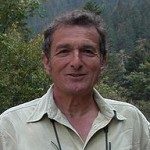Link to Pubmed [PMID] – 17913537
Microbes Infect. 2007 Oct;9(12-13):1454-62
Exposure to vectors of infectious diseases has been associated with antibody responses against salivary antigens of arthropods among people living in endemic areas. This immune response has been proposed as a surrogate marker of exposure to vectors appropriate for evaluating the protective efficacy of antivectorial devices. The existence and potential use of such antibody responses in travellers transiently exposed to Plasmodium or arbovirus vectors in tropical areas has never been investigated. The IgM and IgG antibody responses of 88 French soldiers against the saliva of Anopheles gambiae and Aedes aegypti were evaluated before and after a 5-month journey in tropical Africa. Antibody responses against Anopheles and Aedes saliva increased significantly in 41% and 15% of the individuals, respectively, and appeared to be specific to the mosquito genus. A proteomic and immunoproteomic analysis of anopheles and Aedes saliva allowed for the identification of some antigens that were recognized by most of the exposed individuals. These results suggest that antibody responses to the saliva of mosquitoes could be considered as specific surrogate markers of exposure of travellers to mosquito vectors that transmit arthropod borne infections.


